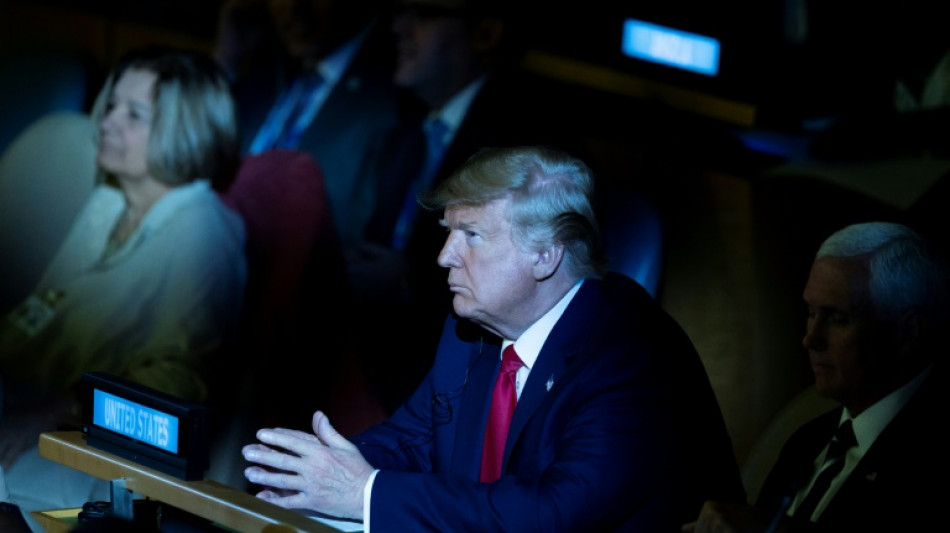

Trump's climate denial and green rollbacks poised to fuel warming
Donald Trump's election victory puts a climate change denier back in the White House, poised to dismantle his predecessor's green policies and jeopardize global efforts to curb human-caused warming.
During his campaign, the Republican revived his "drill, baby, drill" slogan and even brushed off climate change just days before the vote, quipping, "it's very cool out here today."
Experts warn that a second Trump presidency would slam the brakes on the transition to green energy, crushing hopes of hitting crucial long-term climate targets.
The impact would be felt immediately: even before his January inauguration, his election would sap the influence of US negotiators at the COP29 UN climate summit, kicking off on November 11.
A US retreat from climate diplomacy could seriously undermine global action to cut fossil fuel reliance, giving heavy polluters like China and India a convenient excuse to scale back their own plans.
Trump's track record looms large. During his first term he withdrew from the landmark Paris Agreement and has vowed to do so again, after US President Joe Biden brought the world's second-biggest emitter back into the fold.
The formal exit procedure takes a year from notification, meaning the United States would technically stay on board until 2026, if only on paper.
Under the Paris Agreement, Washington pledged to halve its greenhouse gas emissions by 2030 compared to 2005 levels. By 2023, emissions had fallen by 18 percent, according to the Rhodium Group.
But a Carbon Brief analysis warns that a Trump comeback could result in an additional four billion metric tons of CO2 equivalent emissions by 2030 -- roughly the annual emissions of the European Union and Japan combined.
"The outcome of the American election will have ramifications for the whole planet," Leah Stokes, a political scientist at the University of California, Santa Barbara, who specializes in climate, told AFP.
- Rollbacks -
Also in Trump's sights: the Inflation Reduction Act, Biden's signature climate law funneling hundreds of billions of dollars into tax credits and clean energy investments. Trump has vowed to "rescind all unspent funds," but dismantling a law isn't simple.
Even some Republicans see the benefits of its tax incentives and are reluctant to gut it.
Trump has also pledged to end Biden's moratorium on new liquefied natural gas (LNG) export permits and strike down what he dubs the "electric vehicle mandate" -- actually a set of emissions standards aimed at boosting EV adoption, which are not mandates at all.
Newly minted EPA rules aimed at slashing carbon emissions from fossil fuel power plants could also find themselves on the chopping block.
"I do expect to see a fair amount of litigation over any efforts to repeal these regulations," Fatima Ahmad, of the climate consulting firm Boundary Stone Partners, told AFP.
She also expects that state and local governments, along with private sector initiatives, will continue advancing climate action, echoing the momentum seen during Trump's first term.
But despite these efforts, the potential national and international impact remains staggering.
D.Adrovic--LiLuX



